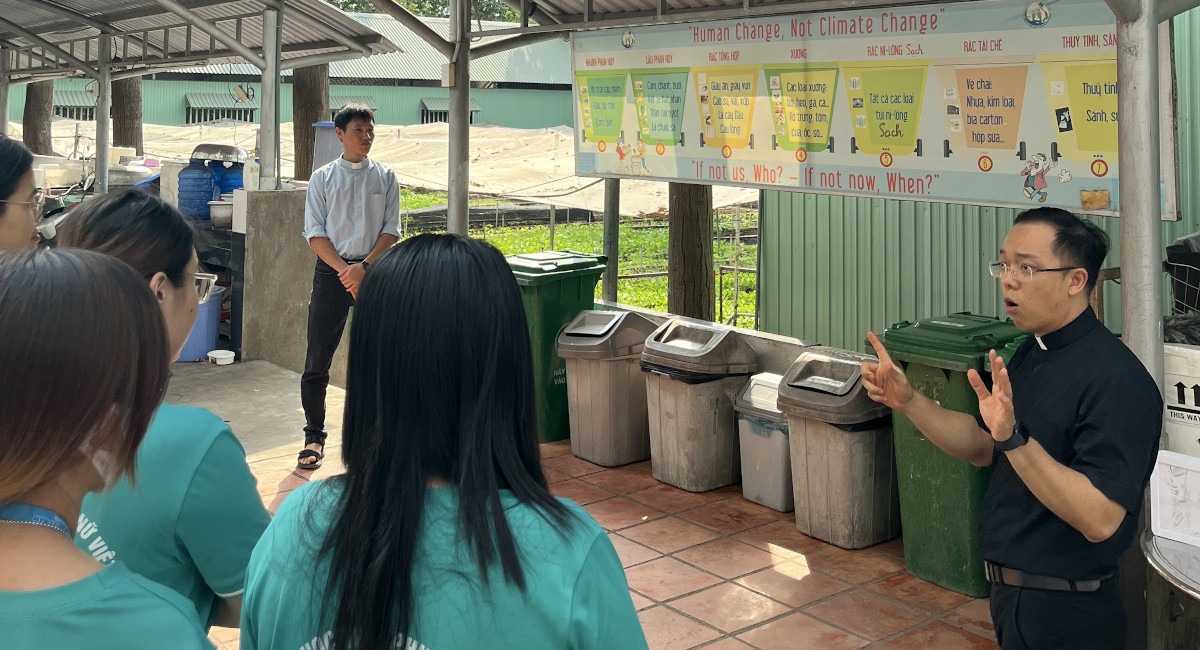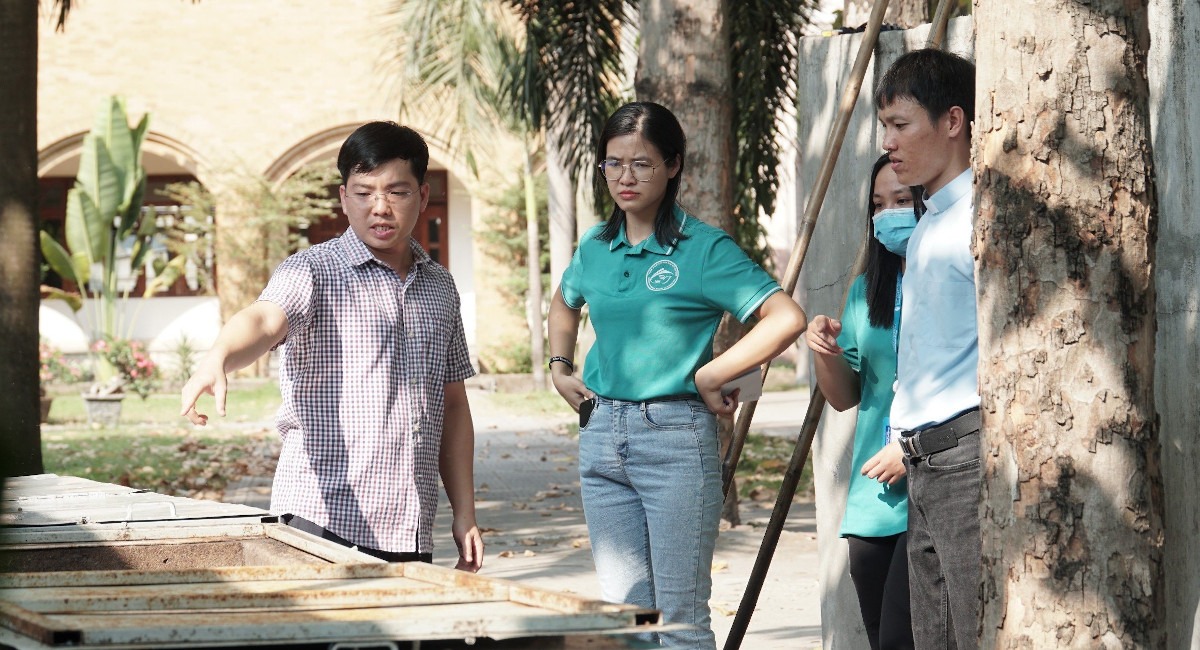 The Vietnamese Ministry of Education and Training partnered with the Vietnamese Jesuit Province to organise an environmental tour for social work students at the Vietnamese Women’s Academy. Themed “Families join hands to preserve the environment”, the activity held on 18 April focused on waste classification and treatment processes.
The Vietnamese Ministry of Education and Training partnered with the Vietnamese Jesuit Province to organise an environmental tour for social work students at the Vietnamese Women’s Academy. Themed “Families join hands to preserve the environment”, the activity held on 18 April focused on waste classification and treatment processes.
As part of their social work with families curriculum, students learned about the waste classification model at St Joseph Jesuit Scholasticate (SJJS) in Ho Chi Minh City. They delved into Pope Francis’ encyclicals, Laudato sí and Laudate Deum, and were introduced to the environmental protection efforts of the Catholic Church and the Jesuits in particular.
Through group discussions, the students listened and shared about the current state of environmental pollution in Vietnam, drawing from media sources, the internet, and the activities they have been a part of. They will work together as a group to identify ecological problems facing the world.
 Scholastic Nguyen Phi Long SJ showcased the waste reduction initiatives at SJSS, such as limiting the use of plastics, reusing plastic bags, classifying solid waste, and composting organic waste. He guided the students in assisting families with waste classification and then took them to the waste classification model at SJJS so they could have a firsthand look at the composting pits. He explained that after food scraps are composted into organic fertilizer, they are applied to the community’s vegetable garden. All these efforts have helped the scholasticate reduce the amount of waste released into the environment and promote sustainability.
Scholastic Nguyen Phi Long SJ showcased the waste reduction initiatives at SJSS, such as limiting the use of plastics, reusing plastic bags, classifying solid waste, and composting organic waste. He guided the students in assisting families with waste classification and then took them to the waste classification model at SJJS so they could have a firsthand look at the composting pits. He explained that after food scraps are composted into organic fertilizer, they are applied to the community’s vegetable garden. All these efforts have helped the scholasticate reduce the amount of waste released into the environment and promote sustainability.
After their exposure at SJJS and inspired by their visit, the students developed a waste classification programme for their school, which was approved by the administration. The students are also coming up with a plan to support families, particularly those in poverty, in implementing waste classification practices at home and in their communities.
The collaboration between the Jesuits, especially SJJS and the Vietnamese Jesuit Province’s environmental committee, and the government’s education sector presents a valuable opportunity to introduce the environmental protection programmes of the Catholic Church to students of all faiths. The Jesuits are grateful that they are able to present a model to educational institutions, fostering a wider network supporting environmental protection. Hopefully, programmes like this can be replicated so that the Jesuits can expand their environmental outreach to new areas. [Vietnamese Jesuits]

